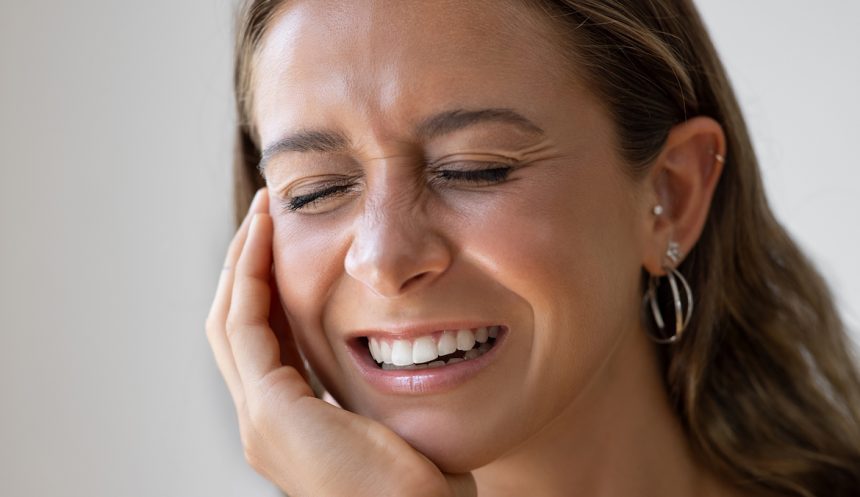Do you find yourself clenching your jaw during stressful situations at work or even grinding your teeth in your sleep? If so, you may be experiencing jaw clenching, also known as bruxism, which can lead to symptoms like jaw pain, headaches, and chipped teeth. It’s essential to address this habit to prevent further side effects. Here’s why jaw clenching happens and expert tips on how to stop it.
Jaw clenching, or bruxism, is a condition where a person clenches, gnashes, or grinds their teeth. It can occur during the day (wakeful or diurnal bruxism) or at night (nocturnal or sleep bruxism), according to the National Library of Medicine. While some people may not be aware they are clenching their jaw, others may experience significant side effects like chipped teeth, headaches, and jaw dislocation. Factors like genetics, lifestyle (such as alcohol, caffeine, and smoking), and stress and anxiety can contribute to bruxism.
According to David H. Rosmarin, PhD, an associate professor at Harvard Medical School, stress and anxiety can play a significant role in jaw clenching. This habit is often a physical response to feeling overwhelmed mentally. Signs of jaw clenching include changes to teeth, jaw pain, facial pain, and sleep disturbances. If left untreated, bruxism can lead to serious dental problems and discomfort.
To prevent and stop jaw clenching, it’s essential to maintain regular dental checkups and possibly use a mouthguard at night to protect your teeth. Additionally, focusing on reducing stress during the day through techniques like mindfulness meditation, exercise, and therapy can help alleviate jaw tension. Biofeedback therapy, keeping a journal of jaw clenching episodes, practicing proper jaw positioning, and adopting healthy lifestyle habits can also help manage bruxism.
Taking steps to address jaw clenching can lead to improved oral health and overall well-being. Consult with your dentist and consider implementing these strategies to prevent further damage and discomfort associated with bruxism.






